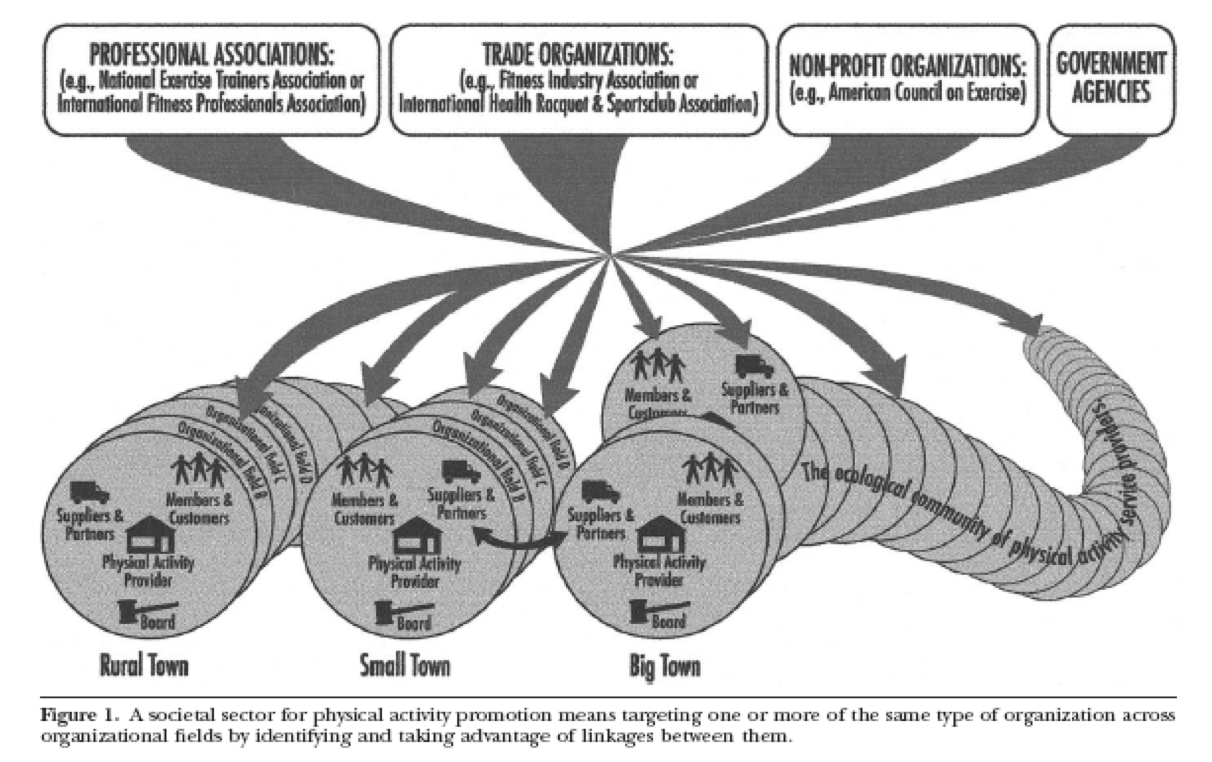Convergent Diffusion and Social Marketing Approach for Dissemination
D and/or I:
 The focus on dissemination and/or implementation activities. D-only focuses on an active approach of spreading evidence-based interventions to target audience via determined channels using planned strategies. D=I, D>I, and I>D means there is some focus on both dissemination and implementation. I-only focuses on process of putting to use or integrating evidence-based interventions within a setting.
The focus on dissemination and/or implementation activities. D-only focuses on an active approach of spreading evidence-based interventions to target audience via determined channels using planned strategies. D=I, D>I, and I>D means there is some focus on both dissemination and implementation. I-only focuses on process of putting to use or integrating evidence-based interventions within a setting.
D>I Socio-Ecological Levels:
 The level of the framework at which the model operates. Individual includes personal characteristics; Organization includes hospitals, service organizations, and factories; Community includes local government and neighborhoods; System includes hospital systems and government; Policy includes changes in policy.
The level of the framework at which the model operates. Individual includes personal characteristics; Organization includes hospitals, service organizations, and factories; Community includes local government and neighborhoods; System includes hospital systems and government; Policy includes changes in policy.
- Organization
- Community
Number of Times Cited:
 The # of times the original publication for the model was cited as indicated by Google Scholar since 2016.
The # of times the original publication for the model was cited as indicated by Google Scholar since 2016.
31 Field of Origin:
 The field of study in which the model originated.
The field of study in which the model originated.
Public Health Practitioner/Researcher:
 Whether the model is for the use of practitioners and/or researchers.
Whether the model is for the use of practitioners and/or researchers.
Researcher and Practitioner Rating:
 These are ratings given by users of the site.
These are ratings given by users of the site.
Constructs:
 Name of the construct developed by classifying/aligning the elements abstracted from models.
Name of the construct developed by classifying/aligning the elements abstracted from models.
Assessment Instruments:
 Name of the assessment developed by classifying/aligning the elements abstracted from models.
Name of the assessment developed by classifying/aligning the elements abstracted from models.
- Consolidated Framework for Implementation Research (CFIR) Interview Guide Webtool
- Context Matters Reporting Template
- Framework for Reporting Adaptations and Modifications to Evidence-based Implementation Strategies (FRAME-IS) Adaptation Tracking Instrument
- Hall's Levels of Use Scale
- Implementation Climate Scale (ICS)
- Implementation Strategy Usability Scale
- Intervention Determinants Item Banks (IDIB)
- Intervention Scalability Assessment Tool (ISAT)
- Local Wellness Policy Implementation Checklist
- Normalization Process Theory Questionnaire (NoMAD)
- Partnership/Synergy Assessment Tool
- Policy Coalition Evaluation Tool (PCET)
- Practical, Robust Implementation and Sustainability Model (PRISM) Contextual Survey Instrument (PCSI)
- Program Sustainability Assessment Tool (PSAT)
- Rapid Assessment Procedure Informed Clinical Ethnography (RAPICE) Protocol, Activity, and Interview Prompt Guide
- Rapid Assessment Procedure Informed Clinical Ethnography (RAPICE) Summary Template
- Readiness Thinking Tool - Observation Guide
- Readiness Thinking Tool - Survey
- Readiness for Recovery and Resiliency - Interview Guide
- Short Program Sustainability Assessment Tool (PSAT)
- Stages of Implementation Completion (SIC)
- Strategies for Translation and Research Log (STAR Log)
- integrated-Promoting Action on Research Implementation in Health Services (i-PARIHS) Interview Guide
Citations:
 The original publication(s) of the model.
The original publication(s) of the model.
Dearing JW. Social marketing and diffusion-based strategies for communicating with unique populations: HIV prevention in San Francisco. J Health Commun 1996;1(4):343–64.
Dearing JW, Maibach EW, Buller DB. A convergent diffusion and social marketing approach for disseminating proven approaches to physical activity promotion. Am J Prev Med 2006;31(4S):S11–S23. Examples:
 Citations of studies that have used the model as an outline for their study.
Citations of studies that have used the model as an outline for their study.
Hunter SM. Applying social marketing and diffusion of innovation theories: an analysis of the marketing and communication activities of performing arts organizations. Akron OH: University of Akron, 2007. There are no reviews yet. Be the first one to write one.
